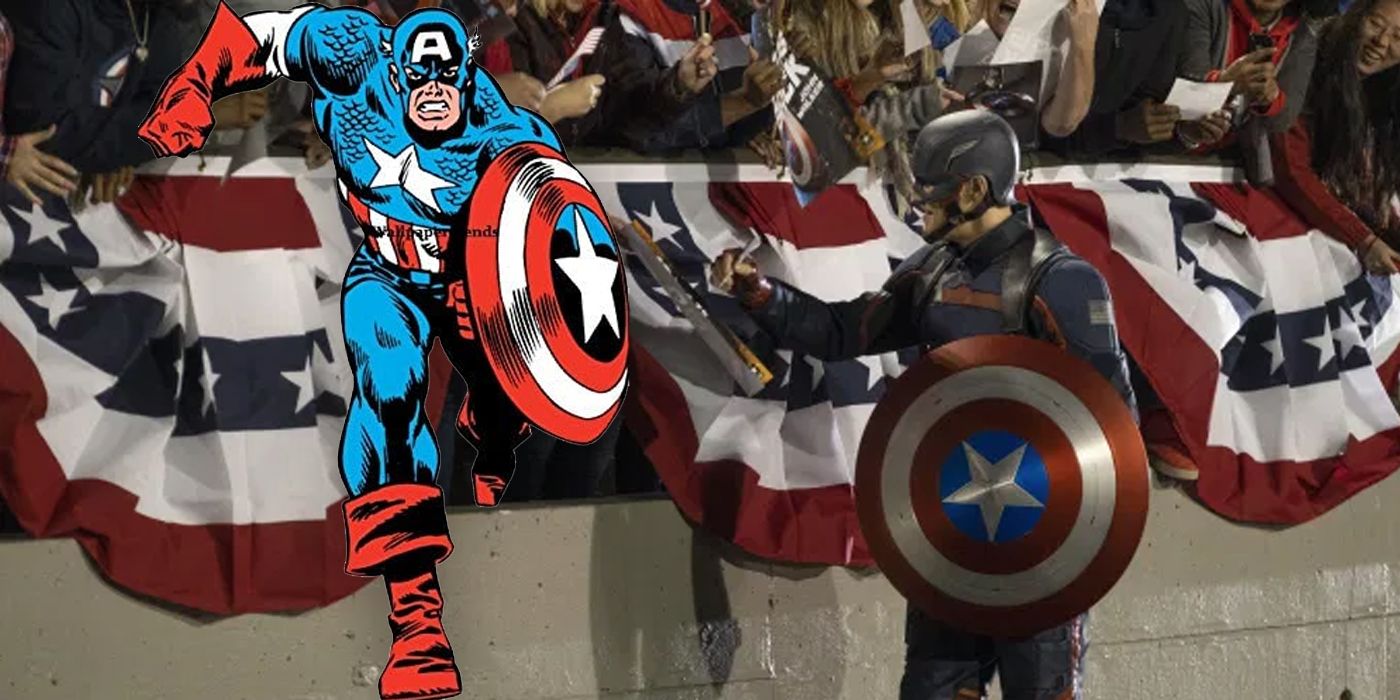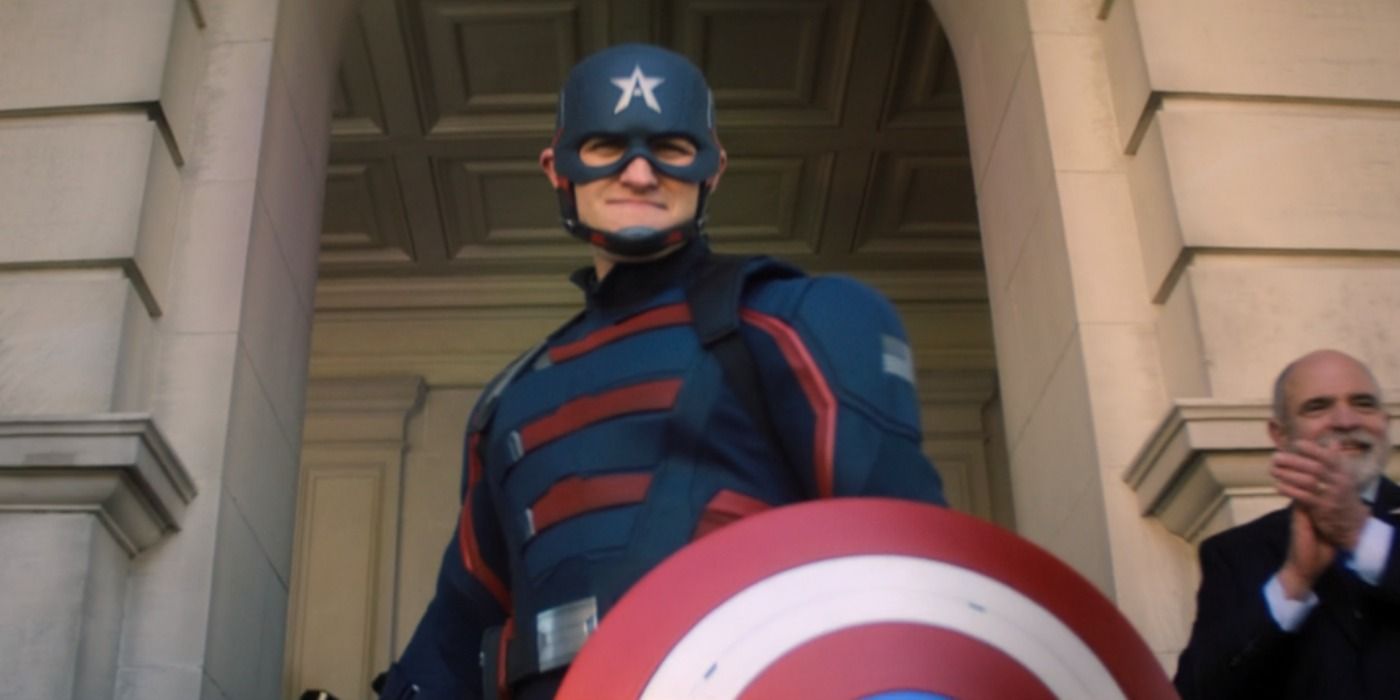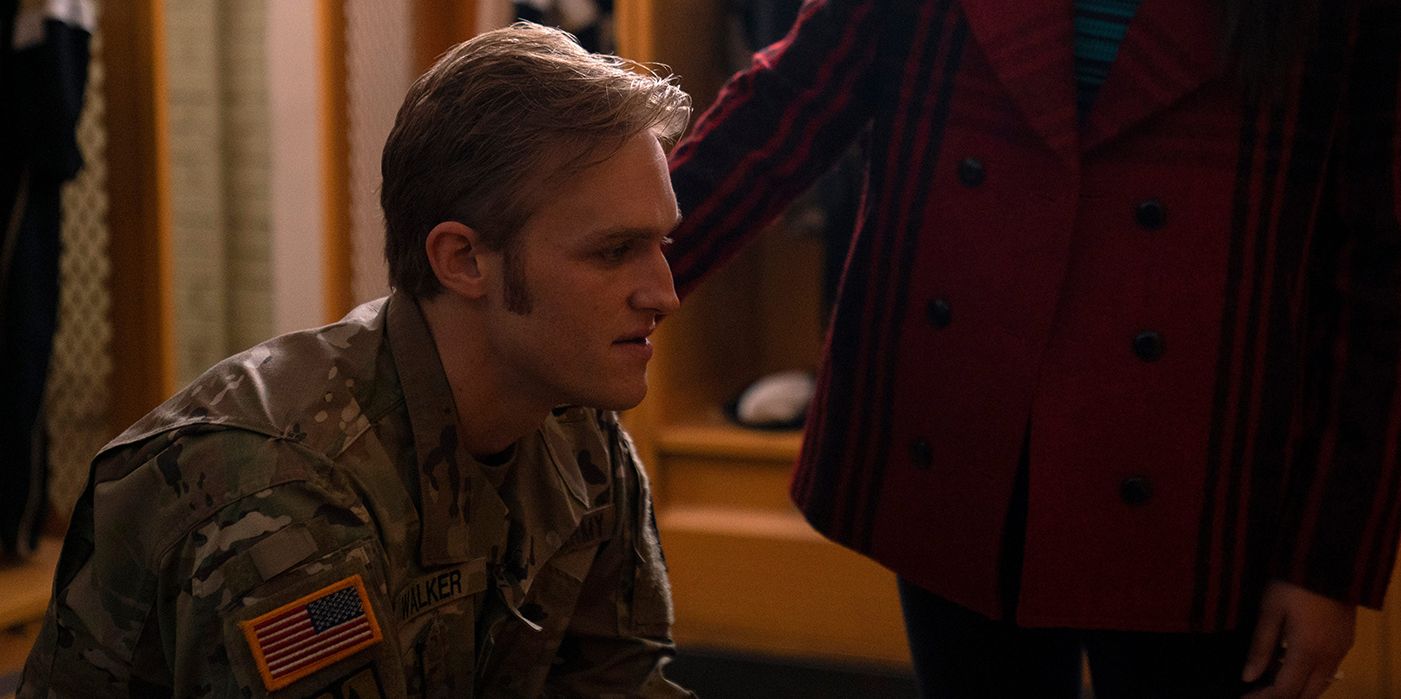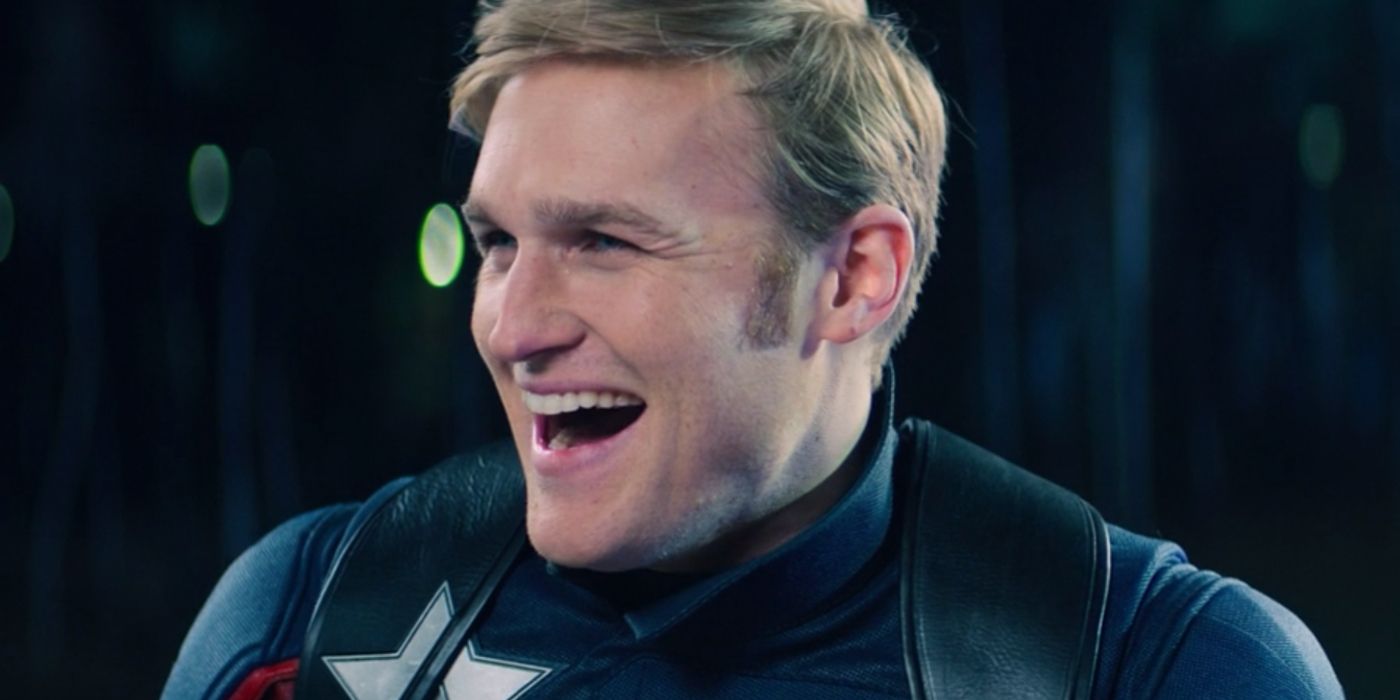John Walker Is What Marvel Originally Wanted Captain America To Be

The new Captain America, John Walker, is exactly what the US Government wanted Captain America to be in the Marvel Universe. It's easy to overlook that the creation of Captain America was actually a political statement. According to co-creator Joe Simon, he and Jack Kirby probably began work on Captain America back in 1939, when the Second World War had just begun. Both Simon and Kirby were Jewish, and they recognized the threat posed by Hitler, believing the United States had to join the fight against Nazism. It's no coincidence the cover of Captain America Comics #1 shows its hero punching Hitler; the statement was a bold one, coming before the US actually joined World War II, and it led to protests from American Nazi sympathizers. From the outset, then, Captain America represented the ideals America stands for at its best, rather than those it too often demonstrates.
Captain America: The First Avenger reproduces the comic book origin of Captain America in a fairly faithful way, although it provides a fascinating explanation for why Steve Rogers suited up in such a strange costume. In the context of the MCU, Steve Rogers was originally supposed to be just the first of an army of American super-soldiers, but that plan was ruined when Abraham Erskine was assassinated and the super-soldier serum was lost. But an act of heroism on Rogers' part as he pursued Erskine's assassin afforded them with a propaganda opportunity, as they realized the public was desperate for heroes. They had Steve Rogers become Captain America, a propaganda tool who encouraged people to join the army or buy war bonds. They intended Captain America to be an empty symbol, representative of values he did not truly embody, for they never expected Steve Rogers to find his way to the front lines.
They had underestimated the heroism of Steve Rogers' soul, and it wasn't long before Captain America had joined the SSR in the battle against Hydra. What's more, although Captain America was believed lost toward the end of the war, he remained a powerful symbol; the Smithsonian Institution's Captain America exhibit clearly focuses on his World War II adventures, suggesting it's been a fixture for a long time. Rogers returned, and no doubt the U.S. government remained uncomfortable with him, especially when he rejected oversight and political accountability in Captain America: Civil War. Now, in John Walker, they have their opportunity to create the kind of Captain America they will find easier to work with.

Marvel Studios has rewritten John Walker's origin story in the MCU in order to make this point. In the comics, Walker and his sidekick Battlestar were subjected to illegal super-soldier serum by the Power Broker, and they subsequently launched a campaign against Captain America. Walker believe Steve Rogers to be an outdated symbol, a man who lived in the America of the past, not the present, and he made his point forcefully. He was definitely more of a villain than a hero, calling himself the Super-Patriot, and encouraging Battlestar to fake attacks on his rallies in order to show off his heroism. When Steve Rogers quit as Captain America, appalled at the corruption he saw in American politics, John Walker was the government's choice to succeed him. He was utterly unsuited for this role, suffering from a brutal, unstable streak, and in the end, Steve had to step in to stop him.
The MCU's version of John Walker is being carefully presented as a much more sympathetic figure. He's not fully comfortable in the role but is still willing to serve as a propaganda tool. Indeed, he seems delighted by the adulation of the crowds, reveling in the role Steve Rogers hated, but the troubled backstory appears to have been removed. There are still hints of the Walker from the comics, such as the way he evokes memories of Captain America: Civil War in a failed attempt to manipulate Falcon and Bucky into working with him, but his more problematic character traits are currently only been displayed subtly.

The MCU's John Walker appears to have served with distinction, and according to The Falcon & The Winter Soldier episode 2 he is the first man in history to be awarded the Medal of Honor for going beyond the call of duty three times. Although he doesn't mind grandstanding, the new Captain America seems to be something of a team player, and he's inspired loyalty from troops he served alongside. He may not have Captain America's charisma, but he's an easygoing guy who everybody seems to want to get along with, and he knows how appealing his character is. All the more troubling aspects of John Walker's backstory, such as his willingness to participate in super-soldier experiments, his deliberate attempt to undermine Steve Rogers, have been removed – so far. The result is a version of the character who feels much more sympathetic and appealing.
It's interesting to note how differently the MCU version of John Walker views Steve. Where the comic book Walker thought Steve an outdated symbol, in the MCU he clearly believes him an icon, a brother who he feels also served with distinction. It's interesting to note, though, that there's already been a subtle hint he disagreed with Steve Rogers over some of his more controversial decisions; notice his attempt to argue the Avengers' division over the Sokovia Accords was the true cause of the problems that faced the world over the next few years. This hints that, unlike Steve, he would always choose to compromise rather than plant himself like a tree and refuse to move.

At heart, then, "Nice Guy" John Walker is an insult to what Captain America truly stood for. He has willingly embraced the part of the job Steve Rogers hated, more focused on becoming a symbol than being a good man. Watching the opening scenes of The Falcon & The Winter Soldier, he seems like an extrovert who derives his energy from the crowd around him, and who loves the attention, or at least, one who is happy enough to play the game. In contrast, Steve was never comfortable with the adoration of the masses, and he was no doubt relieved to bring the tours to an end when he finally joined the SSR.
But the issue goes deeper than that. To the U.S. government in the MCU, John Walker represents a sanitized version of Captain America, one who they do not believe will ever challenge the status quo. It is telling the Smithsonian Exhibit still appears to focus on Steve Rogers' wartime career, because his service in the war is much more comfortable and acceptable; but when he arrived in the twenty-first century, Steve soon demonstrated that being Captain America meant standing for something even when it ran contrary to the status quo. He broke into secure SHIELD facilities to discover Tesseract weapons in The Avengers, he made the decision to bring down SHIELD in Captain America: The Winter Soldier, and he refused to sign onto the Sokovia Accords in Captain America: Civil War. It's impossible to imagine John Walker doing any of these things because he is a tame Captain America, at least from what's been revealed so far.

In theory, John Walker should be the ideal Captain America. He has it all: he's brave enough to have been awarded the Medal of Honor three times, he's handsome and personable for PR purposes, and he commands the loyalty of those around him. But he can never truly be a worthy successor to Captain America because he does not yet stand for anything. He is an empty symbol, one that can be defined by the political and military culture of the time, and he will compromise himself while believing he is acting in service to his country. He's a nice, get along to go along kind of guy, which means he won't stand firm when he knows something is wrong. He's the kind of man who would have been picked to become Captain America by politicians and military leaders, but who would have been rejected by Abraham Erskine without a second thought.
In Captain America: Civil War, Steve Rogers was inspired to reject the Sokovia Accords when he heard Sharon Carter's eulogy for her aunt Peggy. "I asked her once how she managed to master diplomacy and espionage in a time when no one wanted to see a woman succeed at either," Sharon remembered. "And she said, compromise where you can. But where you can't, don't. Even if everyone is telling you that something wrong is something right. Even if the whole world is telling you to move... it is your duty to plant yourself like a tree, look them in the eye and say 'No, you move.'" This is counsel John Walker seems likely to reject, and while it has made him one of America's most celebrated soldiers, it means he is destined to fail as Captain America.
from ScreenRant - Feed
